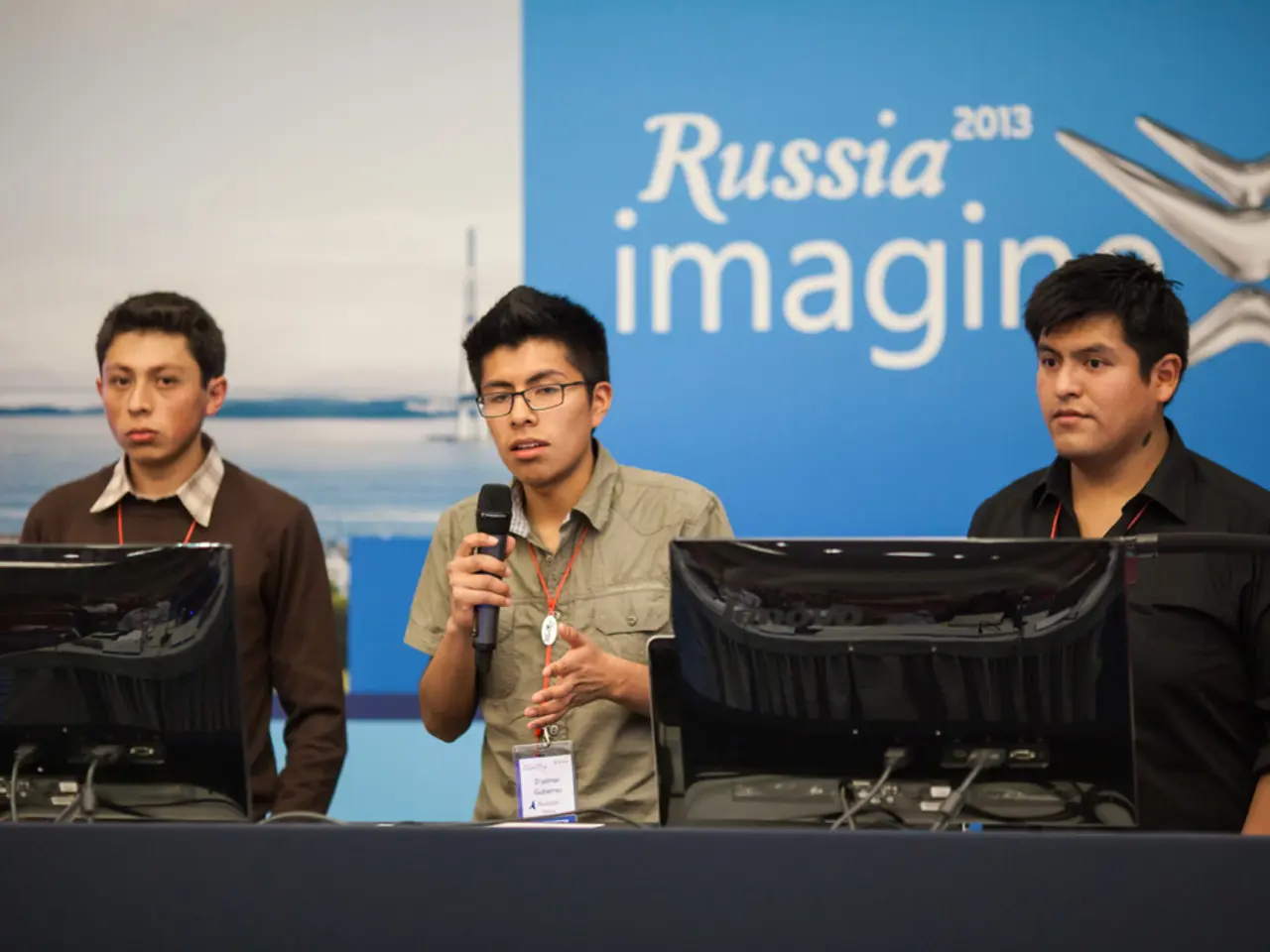Artificial Intelligence may Boost Kazakhstan's Global Status, but Obstacles Persist
In the rapidly evolving world of artificial intelligence (AI), Kazakhstan, a developing nation, faces unique challenges in its pursuit of advancement. This article explores the key issues and potential solutions that the Central Asian country is grappling with.
Madina Abdrakhmanova, a deputy director at the International Centre for AI and Internet Security (ISSAI), has expressed concerns over the excessive regulation of AI-supporting equipment. This is particularly relevant as the European Union (EU) has adopted the first global regulatory act, the ChatGPT standard for personal data protection.
However, the situation in Kazakhstan is different. Exports related to AI technologies are under strict control, and the country lacks access to microchip technology essential for AI development. This lack of access, coupled with high demand and a certain level of monopoly held by Nvidia for such equipment, remains an obstacle, even with sufficient funds.
Artem Rychko, head of data processing at 7Generation, and Yekaterina Smyshlyayeva, a deputy of the Mazhilis, have highlighted the need for a comfortable law that will allow technology to develop, ensure safety, and outline clear and precise rules of the game. Smyshlyayeva also emphasised that digital law has its own peculiarities, and law always follows technology.
One proposed solution to the lack of access to AI-supporting technology is purchasing ready-made servers, which can cost millions of dollars. Yet, these servers might not always be the most efficient solution, given the high demand and monopoly in the market.
The Kazakh Ministry of Digital Development, Innovation, and Aerospace Industry is leading negotiations for a U.S. export license to supply Nvidia chips to Kazakhstan. These negotiations, led by the US Department of Commerce, are crucial for the development of artificial intelligence in Kazakhstan.
The expert community is hopeful that these negotiations will result in a balanced regulatory framework, necessary for Kazakhstan to advance in AI development. This framework would address misinformation and national security concerns while remaining appealing to investors.
It's worth noting that AI capabilities are unevenly distributed globally, as stated by UN Secretary-General Antonío Guterres. Tight regulatory scrutiny on AI technology could put developing countries like Kazakhstan at a disadvantage.
In conclusion, Kazakhstan's journey towards AI development is marked by both challenges and opportunities. The resolution of these negotiations is crucial for the country to take its place in the global AI landscape, ensuring a balanced approach that fosters technological advancement while maintaining safety and security.
This article was originally published on Kazinform.
Read also:
- Peptide YY (PYY): Exploring its Role in Appetite Suppression, Intestinal Health, and Cognitive Links
- Toddler Health: Rotavirus Signs, Origins, and Potential Complications
- Digestive issues and heart discomfort: Root causes and associated health conditions
- House Infernos: Deadly Hazards Surpassing the Flames








